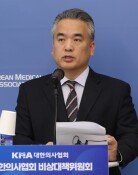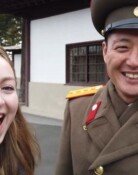[Editorial] The Purpose of an Inter-Korean Summit
[Editorial] The Purpose of an Inter-Korean Summit
Posted October. 24, 2009 09:07,
Media reports say both Koreas held a secret meeting in Singapore on an inter-Korean summit, but the South Korean government remains mum. The presidential office of Cheong Wa Dae denied such reports yesterday, saying high-level inter-Korean talks will come soon. Commenting on a KBS News report that high-ranking officials from both Koreas spoke in Singapore on the summit, Seoul called it a thing of the past. This tepid denial raises further speculation. The South Korean people have the right to know what both sides discussed on a summit.
A clear purpose should be set for an inter-Korean summit. Despite two previous summits, the South Korean people will judge a third summit in a cold-headed manner. As is the case for every summit, the event should also be judged based on the results it produces. What is important is how the leaders of the two Koreas will meet, their agenda, and the results they achieve. Any breakthrough will come in pending inter-Korean issues unless the North gives up its nuclear ambition.
A valuable lesson was learned from the 2000 and 2007 summits: talks prepared secretly can lead to seriously adverse effects. To hold the first summit nine years ago, the Kim Dae-jung administration sent 450 million U.S. dollars to the North. To avoid public criticism, Seoul held secret contacts with Pyongyang. The succeeding Roh Moo-hyun administration also secretly contacted the North to hold a second summit just four months before its term ended. North Korean leader Kim Jong Il never reciprocated with a visit to Seoul as agreed in the first summit. The denuclearization of Pyongyang, the biggest issue between the two Koreas, was never mentioned in the second.
For Kim Jong Il, an inter-Korean summit is a profitable business because it helps solidify the communist regime and delivers economic gains. The North has simply gotten benefits and failed to deliver on its promises, however. The Stalinist country has a clear intent to hold another summit after raising tension with its long-range missile firings and second nuclear test. It wants to avoid international sanctions and get generous assistance from the South, including rice and fertilizer aid and the resumption of tours to Mount Kumgang.
If Seoul continues its secret meetings with Pyongyang, the North could believe that the Lee Myung-bak administration is also eager to hold a summit. The Lee administration must not pursue something with an uncertain result, however. An inter-Korean summit is no longer a dramatic event. The South must instead focus on the resumption of six-party talks and international cooperation.
If the Lee administration wants to hold an inter-Korean summit, preparation should be transparent and a visit to Seoul by Kim Jong Il and the discussion of the Norths nuclear program should be preconditions. If Pyongyang proposes secret meetings, Seoul should lead it to open dialogue. The South must also make a full disclosure of the meeting with the North in Singapore, since it is not so desperate for a summit to hide what was discussed.







